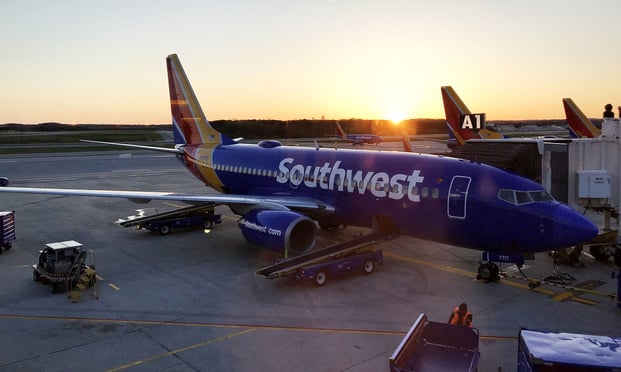 One element of the Affordable Care Act (ACA) that has posed major concerns for employers may soon cease to trouble them. There's growing support for legislation that would repeal the ACA's tax on high-cost employee health plans, dubbed the “Cadillac tax.”
One element of the Affordable Care Act (ACA) that has posed major concerns for employers may soon cease to trouble them. There's growing support for legislation that would repeal the ACA's tax on high-cost employee health plans, dubbed the “Cadillac tax.”
Scheduled to take effect in 2018, the Cadillac tax requires companies to pay a 40% excise tax on health coverage that exceeds a certain level. In 2018, the levels are $10,200 a year for individual coverage and $27,500 for family coverage.
This was designed to be one of the ACA's main means of containing healthcare costs. It is also expected to raise a significant amount of revenue to offset some of the costs associated with healthcare reform. The issue of replacing the lost revenue is the main barrier to a repeal.
The effort to eliminate the tax has broad-based support, not only from businesses, but also from unions and local governments and among both Republican and Democratic legislators. Politicians calling for a repeal range from presidential contender Hillary Clinton to House Ways and Means Committee Chairman Paul Ryan (R-Wisc.).
Four measures to eliminate the tax have been introduced in Congress: two in the House, one introduced by Republican Rep. Frank Guinta of New Hampshire and the other by Democratic Rep. Joe Courtney of Connecticut; and two in the Senate, one introduced by Republican Sen. Dean Heller of Nevada and Democratic Sen. Martin Heinrich of New Mexico, and the other by Democratic Sen. Sherrod Brown of Ohio.
Steve Wojcik, vice president for public policy at the National Business Group on Health, which represents employers on health benefits issues, said there's “momentum” behind the effort to repeal the tax.
“Four bills, in both the Senate and House, on both sides of the aisle, is positive,” he said. “There's going to be at least awareness that this is an issue, and hopefully some action in 2016.”
Jim Klein, president of the American Benefits Council, which represents big companies on benefits issues, noted that about 250 members of the House have signed on as co-sponsors of one of the two House bills.
“We now have over a majority of House members who have co-sponsored a bill to repeal” the Cadillac tax, Klein said. “We are very heartened by the fact that this issue of repeal does enjoy broad bipartisan support in both the House and Senate.”
“There seems to be little standing in the way of repealing the Cadillac tax but how it will be paid for,” said Allison Klausner, principal in the compliance consulting center of Buck Consultants at Xerox. “Paying for it is the area where there is some controversy as to how much the tax would have brought in and therefore how much will have be raised from other sources to offset that.”
Cadillac Tax Leaves Revenue Hole
Repealing the tax results in a big loss of revenue, at least theoretically: The Congressional Budget Office (CBO) projected that the tax will raise $87 billion over 10 years.
None of the bills before Congress propose a way of replacing that revenue if the tax is repealed, although Sen. Brown's measure includes a “sense of the Senate” resolution that Congress should offset the lost revenue.

We are very heartened
by the fact that this issue
of repeal does enjoy
broad bipartisan support
in both the House and Senate.
—Jim Klein, American Benefits Council
But organizations representing employers are questioning the $87 billion estimate. Klein cited “a great deal of skepticism that the revenue number associated with this provision is accurate.”
The $87 billion estimate includes not only revenue from the tax itself but increased income tax revenue because the CBO assumes that as companies cut back on health benefits to avoid the tax, they will increase workers' wages to offset those reductions, boosting the income tax that workers owe.
Wojcik said that all the employers he talks to say they will alter their health benefits rather than pay the tax, casting into doubt the billions the CBO is expecting from that source. And he questioned the extent to which employers will raise wages in the current economy, even if they do cut back on healthcare benefits.
Revenue “is definitely an impediment to moving forward to repeal that Republicans and Democrats would want to address,” Klein said. “Ultimately, if it's going to move forward, Congress will have to make a determination whether it is going to be fully or partially paid for, and if so how that would be done.”
'Already Having an Impact'
In the past couple of years, companies began making changes to the health benefits they offer, to reduce their costs in anticipation of the Cadillac tax.
“Employers are having to change their plans now in order to be on a trajectory to delay when they have to pay the tax,” Klein said. “It's already having an impact even though it hasn't gone into effect.”
Despite companies' efforts to contain the cost of their healthcare benefits, a Kaiser Family Foundation study suggests that up to 26% of employers could face paying the tax on at least one health plan in 2018, and that portion could rise to 30% in 2023 and 42% in 2028. A separate National Business Group on Health survey of large employers found that 48% expected one of their health plans would be subject to the tax in 2018 unless they made changes.

“Right now there's a big wave
trying to repeal the Cadillac
tax. But we still have
to address the revenue issue.
–Allison Klausner, Buck Consultants at Xerox
Klausner doesn't expect legislation that repeals the Cadillac tax to pass this year, but she said that, in the meantime, companies are pushing for modifications to rules on how to implement the tax that would exempt certain components of health plans—such health savings accounts (HSAs), flexible spending accounts, and on-site health clinics—from being included in the calculation of the value of health benefits for the excise tax.
She noted that dental and vision plans can be structured so that they are separate from healthcare benefits. “We would want HSAs and flexible spending accounts and on-site clinics to be on that side of the ledger in determining whether the high-cost plan tax is triggered.”
In the meantime, employers should “continue to recognize what the law is today and continue building those strategies to avoid that excise tax,” Klausner said.
“Right now there's a big wave trying to repeal the Cadillac tax,” she said. “But we still have to address the revenue issue.”
Complete your profile to continue reading and get FREE access to Treasury & Risk, part of your ALM digital membership.
Your access to unlimited Treasury & Risk content isn’t changing.
Once you are an ALM digital member, you’ll receive:
- Thought leadership on regulatory changes, economic trends, corporate success stories, and tactical solutions for treasurers, CFOs, risk managers, controllers, and other finance professionals
- Informative weekly newsletter featuring news, analysis, real-world case studies, and other critical content
- Educational webcasts, white papers, and ebooks from industry thought leaders
- Critical coverage of the employee benefits and financial advisory markets on our other ALM sites, PropertyCasualty360 and ThinkAdvisor
Already have an account? Sign In Now
*May exclude premium content© 2025 ALM Global, LLC, All Rights Reserved. Request academic re-use from www.copyright.com. All other uses, submit a request to [email protected]. For more information visit Asset & Logo Licensing.





